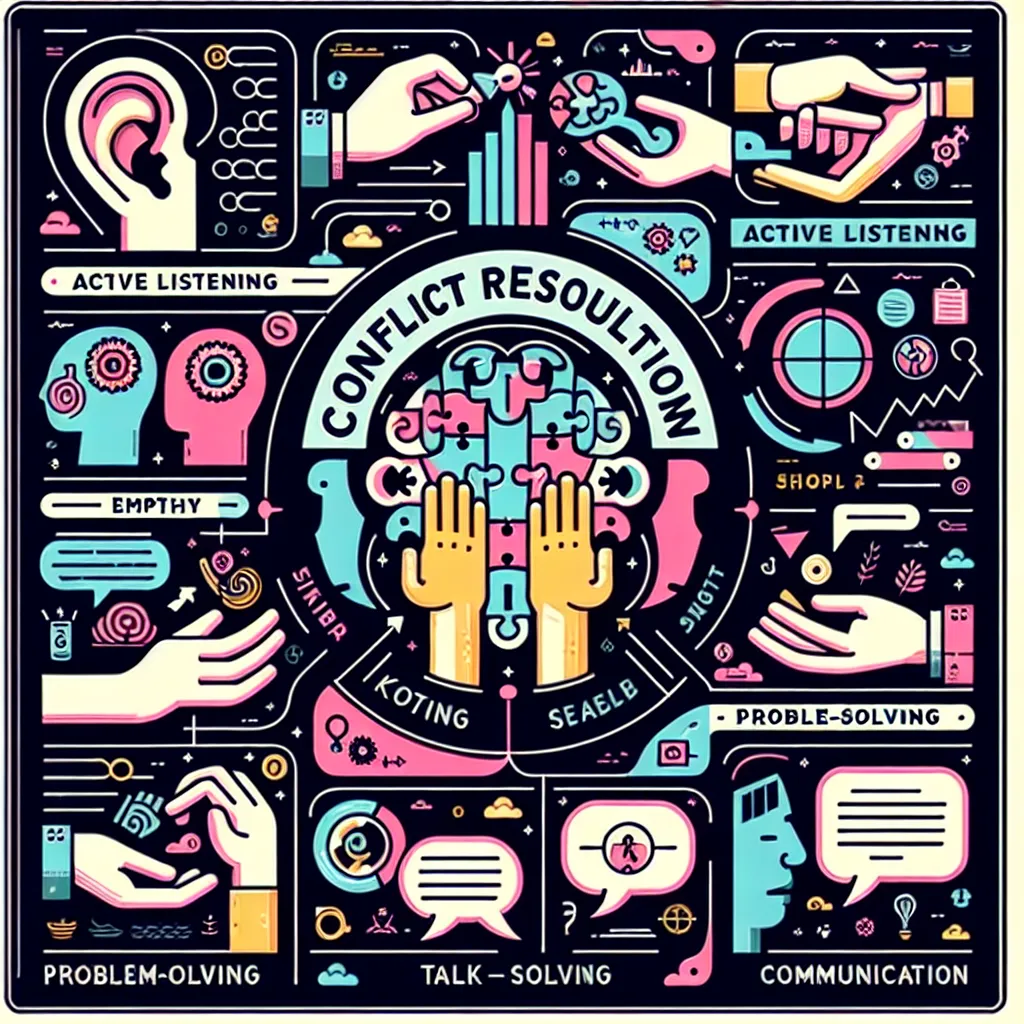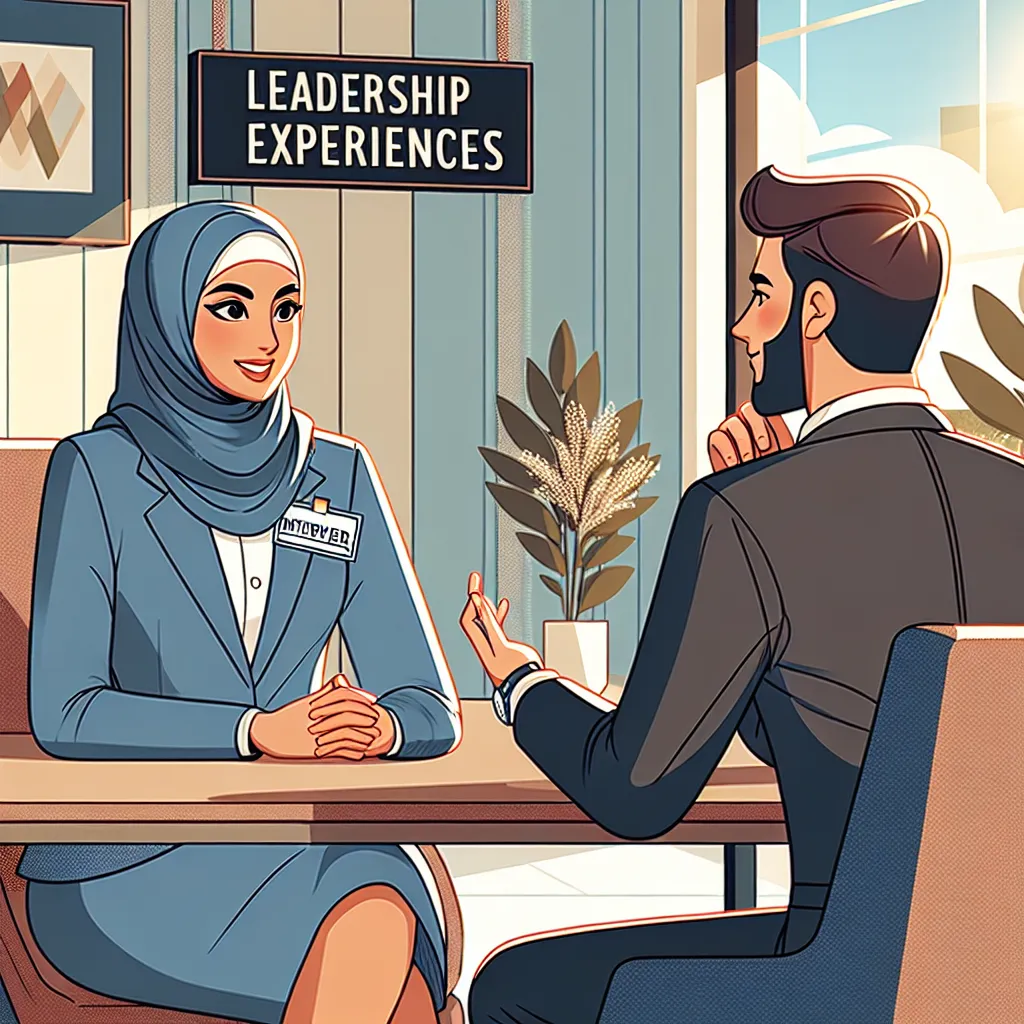Conflict resolution skills are essential in any workplace, and employers often seek candidates who can effectively manage disagreements and foster a harmonious work environment. In this article, we’ll explore how to articulate your conflict resolution abilities during a job interview, providing you with valuable insights and strategies to impress potential employers.
Understanding Conflict Resolution Skills
Conflict resolution skills refer to the ability to address and resolve disagreements or disputes between individuals or groups in a constructive manner. These skills are crucial in maintaining a positive work atmosphere, improving team productivity, and fostering healthy professional relationships.
Why Conflict Resolution Skills Matter to Employers
Employers value candidates with strong conflict resolution skills for several reasons:
- Improved team dynamics
- Enhanced productivity
- Reduced workplace stress
- Better customer relations
- Effective leadership potential
 Conflict Resolution Skills Infographic
Conflict Resolution Skills Infographic
How to Showcase Your Conflict Resolution Skills
When discussing your conflict resolution abilities in an interview, consider the following approaches:
1. Use the STAR Method
The STAR (Situation, Task, Action, Result) method is an effective way to structure your responses:
- Situation: Describe a specific conflict you encountered
- Task: Explain your role in resolving the conflict
- Action: Detail the steps you took to address the issue
- Result: Share the positive outcome of your intervention
Example:
“In my previous role as a project manager, two team members had a disagreement over project priorities (Situation). As their supervisor, it was my responsibility to mediate and find a solution (Task). I arranged a meeting with both parties, actively listened to their concerns, and facilitated a discussion to find common ground (Action). As a result, we developed a compromise that satisfied both team members and kept the project on track (Result).”
2. Highlight Specific Skills
Emphasize particular conflict resolution skills you possess, such as:
- Active listening
- Empathy
- Impartiality
- Problem-solving
- Emotional intelligence
- Negotiation
- Mediation
Example:
“One of my strengths is active listening. I make a conscious effort to understand all perspectives in a conflict before proposing solutions. This approach has helped me resolve numerous workplace disagreements effectively.”
3. Provide Concrete Examples
Offer specific instances where you successfully resolved conflicts:
Example:
“In my role as a customer service representative, I once dealt with an irate customer who was dissatisfied with our product. By remaining calm, acknowledging their frustration, and working collaboratively to find a solution, I was able to turn the situation around. The customer not only remained with our company but also became a loyal advocate for our brand.”
Common Interview Questions on Conflict Resolution
Be prepared to answer questions such as:
- “Describe a time when you had to resolve a conflict at work.”
- “How do you handle disagreements with colleagues?”
- “What steps do you take to de-escalate a tense situation?”
- “Can you share an example of a conflict you were unable to resolve? What did you learn from it?”
- “How do you ensure all parties feel heard during a conflict?”
Sample Answers
-
“In my previous role, two team members had conflicting ideas about a project’s direction. I organized a meeting where each person could present their viewpoint. Through active listening and facilitation, we identified common goals and integrated elements from both approaches, resulting in a stronger overall strategy.”
-
“When facing disagreements with colleagues, I first try to understand their perspective fully. I remain open-minded and focus on finding common ground. If necessary, I suggest involving a neutral third party to mediate and help us reach a mutually beneficial solution.”
-
“To de-escalate tense situations, I start by remaining calm and composed. I use a low, steady voice and non-threatening body language. I acknowledge the emotions of all parties involved and try to redirect the conversation towards problem-solving rather than blame.”
-
“In one instance, I struggled to resolve a conflict between a senior manager and a new employee. While I couldn’t fully resolve the issue, I learned the importance of addressing power dynamics in conflicts and the value of involving HR in more complex situations.”
-
“To ensure all parties feel heard, I use active listening techniques such as paraphrasing and asking clarifying questions. I give each person equal time to speak and validate their feelings, even if I don’t agree with their position.”
Tips for Handling Unexpected Conflict-Related Questions
If you encounter a question about conflict resolution that you’re not prepared for:
- Take a moment to gather your thoughts
- Ask for clarification if needed
- Draw from your general conflict resolution principles
- Be honest if you lack specific experience, but explain how you would approach the situation
Example:
“While I haven’t encountered that exact scenario, I would approach it by first…”
 Interview Preparation Checklist
Interview Preparation Checklist
Common Mistakes to Avoid When Discussing Conflict Resolution
-
Avoiding the topic: Don’t shy away from discussing conflicts. Employers want to know you can handle challenging situations.
-
Being too negative: Focus on positive outcomes and learning experiences rather than dwelling on the negative aspects of conflicts.
-
Lack of specificity: Provide concrete examples rather than vague generalizations about your conflict resolution skills.
-
Overemphasis on personal conflicts: While personal conflicts can be relevant, focus more on professional scenarios.
-
Claiming to never experience conflicts: This may come across as disingenuous. It’s normal to encounter conflicts; what matters is how you handle them.
-
Failing to show growth: Demonstrate how your conflict resolution skills have improved over time through experience and learning.
Follow-up Questions and Suggested Responses
-
Q: “How do you handle conflicts with superiors?”
A: “I approach conflicts with superiors respectfully and professionally. I focus on the issue at hand rather than personal differences, and I come prepared with facts and potential solutions.” -
Q: “What’s your approach to conflicts arising from cultural differences?”
A: “I’m sensitive to cultural differences and strive to understand various perspectives. I educate myself about different cultural norms and seek common ground while respecting diversity.” -
Q: “How do you manage conflicts in a remote work environment?”
A: “In remote settings, clear communication is key. I use video calls for sensitive discussions, ensure everyone has a chance to speak, and follow up with written summaries to avoid misunderstandings.” -
Q: “Can you describe a situation where you had to mediate a conflict between team members?”
A: “I once mediated between two colleagues with different work styles. By facilitating open dialogue and helping them understand each other’s strengths, we developed a collaborative approach that improved team efficiency.” -
Q: “How do you handle conflicts that arise from competing priorities?”
A: “I start by clarifying the overall objectives and then work with all parties to prioritize tasks based on their impact and urgency. This often involves negotiation and finding creative compromises.”
Conclusion
Effectively communicating your conflict resolution skills during an interview can significantly enhance your candidacy. By preparing specific examples, using the STAR method, and highlighting key conflict resolution abilities, you can demonstrate your value as a potential employee who can contribute to a positive and productive work environment.
Remember, the goal is not to present yourself as someone who never encounters conflicts, but as someone who can handle them professionally and turn them into opportunities for growth and improvement.
For more insights on interview preparation, check out our articles on how to discuss your experience in managing teams and how to talk about your project management experience.




